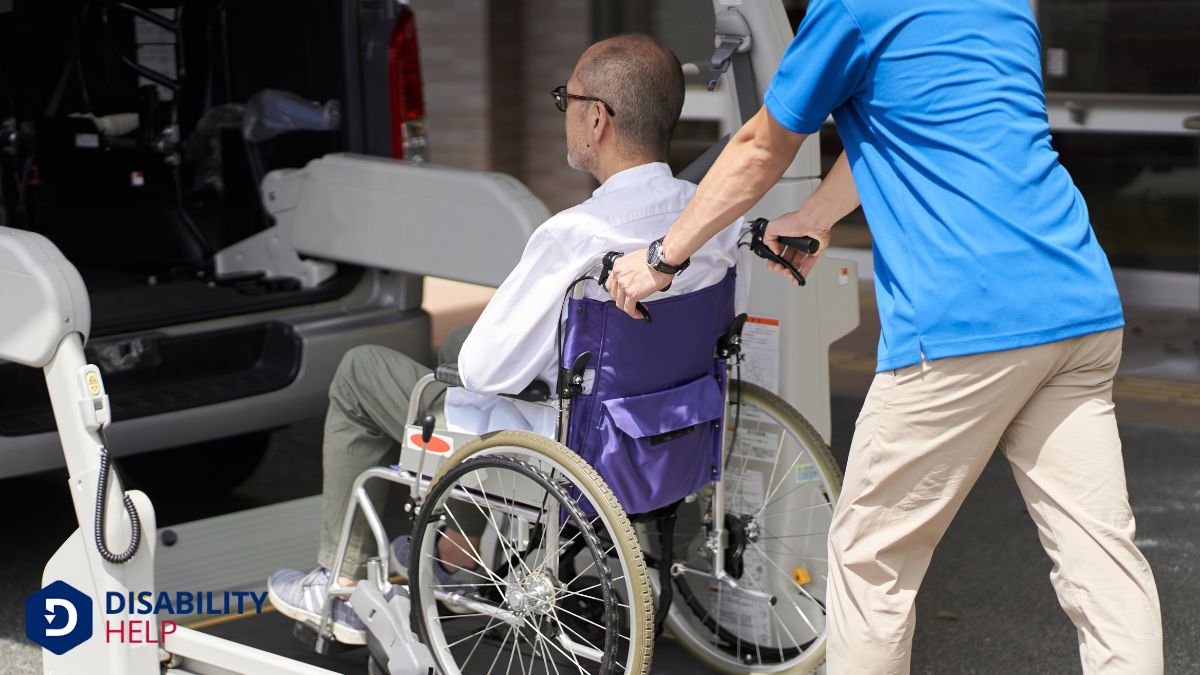We often find ourselves needing to navigate financial challenges when temporary medical conditions prevent us from working. Injuries, surgeries, pregnancy-related issues, chronic illnesses, and mental health disorders are some conditions that qualify for short-term disability benefitsFinancial assistance provided to individuals who are unable to work due to a disability, such as Soc.... These benefits offer vital income replacement during recovery periods. Understanding your policy's specific coverage limits and duration is important for effective planning. Discovering further details can help guarantee you're prepared for life's unexpected turns.
Key Takeaways
- Short-term disability benefits cover temporary inability to work due to qualifying medical conditions.
- Conditions include non-work-related injuries, surgeries, and recovery from accidents.
- Pregnancy-related complications and postpartum recovery qualify for short-term disability.
- Mental health disorders like depressionA mental health condition marked by persistent feelings of sadness and loss of interest. and anxiety may also qualify for benefits.
- Policy specifics vary, so reviewing individual plans is crucial for understanding coverage.
Understanding Short-Term Disability Coverage

When we explore short-term disability coverage, it’s crucial to understand what it really entails. This type of insurance provides income replacement for a portion of our salary during a temporary period when we're unable to work due to a qualifying medical condition. It aims to ease financial stress when we can't perform our job duties, but it’s important to know what conditions are typically covered.
Short-term disability often covers non-work-related illnesses or conditions, like surgeries, maternity leave, or certain chronic illnesses that temporarily hinder our ability to work. Each policy can vary, so we must review our specific plan details.
Knowing the ins and outs of our coverage helps us navigate potential claims more effectively and guarantees we’re adequately prepared for unexpected health challenges.
Physical Injuries and Accidents
When we're faced with physical injuries at work, it's essential to know how short-term disability benefits can support us.
These benefits often cover recovery from accidents, including surgeries and rehabilitationThe process of helping individuals with disabilities achieve and maintain their optimal physical, se..., ensuring we get back on our feet.
Workplace Injury Coverage
Although workplace injuries and accidents can be unpredictable, understanding how they're covered under short-term disability benefits is essential for employees seeking protection.
These benefits provide financial support if we're temporarily unable to work due to a qualifying injury sustained on the job. It’s crucial to acknowledge that short-term disability often complements workers' compensation, which primarily covers medical expenses and a portion of lost wages.
When assessing coverage, we should check our employer's policy details to verify we're aware of any waiting periods or specific eligibility requirements.
By doing so, we can confidently access the resources needed to focus on recovery without the added stress of financial strain.
Let's take proactive steps to understand our rights and benefits, making sure we're prepared for unforeseen workplace incidents.
Accident Recovery Benefits
Understanding workplace injuries helps us better prepare for accident recovery benefits, which cover physical injuries and accidents.
These benefits are essential for bridging the gap while we heal and regain strength.
Let's explore what typically qualifies under this category:
- Fractures and Sprains: These common injuries often occur from slips, trips, or falls, requiring time off for proper healing.
- Back and Neck Injuries: Heavy lifting or sudden impacts can lead to significant pain, making it difficult to perform daily tasks.
- Head Injuries: Even mild concussions need careful monitoring and rest, emphasizing the importance of recovery time.
Surgery and Rehabilitation
Surgery and rehabilitation play an essential role in the journey toward recovery after experiencing physical injuries and accidents.
When we've undergone surgery, short-term disability benefits can offer vital financial support. These benefits help us focus on healing without the stress of lost wages.
Rehabilitation is often necessary to regain strength and mobility, and it may involve physical therapy, occupational therapy, or other specialized treatments.
It's important to understand that qualifying for these benefits typically requires medical documentation and a clear treatment planA detailed plan developed by healthcare professionals to treat a specific health condition, outlinin....
By working closely with our healthcare providers, we can guarantee that the necessary paperwork is in order.
Let's remember that these benefits are designed to aid in our recovery process, allowing us to heal properly and return to our daily lives with confidence.
Surgical Recovery Periods
Recovering from surgery is a journey that varies greatly based on the type and complexity of the procedure.
We must recognize that surgical recovery periods can qualify for short-term disability benefits, providing essential financial support when we need it most.
Here’s what to take into account:
- Type of Surgery: Different surgeries require different recovery times. For example, a minor procedure might need a week, while major surgery could take months.
- Doctor's Recommendations: Follow your doctor’s advice on recovery time. They’ll assess your situation and recommend the appropriate duration for healing.
- Complications: Sometimes, unforeseen complications can extend your recovery. In such cases, short-term disability benefits can help cover additional time off.
Mental Health Disorders
While often overlooked, mental health disorders can profoundly impact our ability to work, just as physical ailments do. Conditions like depression, anxiety, bipolar disorderA mental health condition characterized by extreme mood swings, including manic and depressive episo..., and PTSD can disrupt our daily routines and make it difficult to maintain productivity.
When these disorders reach a level where they hinder our ability to perform job functions, short-term disability benefits can provide essential support.
It's important to recognize that mental health challenges are legitimate and deserve the same consideration as physical conditions. By acknowledging and addressing these issues, we can help reduce stigmaThe negative attitudes and discrimination faced by individuals with disabilities due to societal ste... and guarantee that our well-being is prioritized.
Seeking professional help and obtaining documentation from mental health professionals can facilitate the application process for these benefits, assuring we receive the support we need.
Pregnancy and Childbirth Complications
When complications arise during pregnancy and childbirth, they can greatly affect a person's ability to work, making short-term disability benefits essential.
These benefits provide vital financial support, helping us focus on recovery without added stress.
Let's consider three common situations where these benefits come into play:
- Severe Morning Sickness: This condition can lead to dehydration and weight loss, making it difficult to maintain regular work hours.
- High-Risk Pregnancy: Conditions like preeclampsia or gestational diabetesA chronic condition where the body cannot produce or properly use insulin, leading to high blood sug... may require bed rest or frequent medical visits, impacting work attendance.
- Postpartum Complications: Issues such as severe postpartum depression or recovery from a cesarean section may prolong recovery time.
Understanding these scenarios helps us appreciate the importance of short-term disability benefits during challenging times.
Chronic Illnesses and Conditions
As we've seen with pregnancy and childbirth complications, having reliable short-term disability benefits can make a significant difference.
Chronic illnesses and conditions, such as diabetes, asthma, or arthritisInflammation of the joints, leading to pain, stiffness, and limited movement., often require ongoing medical attention and can temporarily hinder our ability to work. While these conditions mightn't always be disabling full-time, flare-ups or sudden worsening can create significant obstacles.
Short-term disability benefits serve as an important safety net during these challenging times. They allow us to focus on managing our health without the added financial stress.
By understanding which chronic conditions qualify for these benefits, we can better prepare ourselves and guarantee that we're supported when we need it most.
It’s vital to check our specific policy details and consult with healthcare providers.
Temporary Disabilities and Their Limitations

When we think about temporary disabilities, we often consider situations like fractures, surgeries, or serious illnesses that briefly keep us from working.
It's important to understand how short-term disability benefits can help, but they do have their limitations.
Let's explore how these benefits work and what they mightn't cover.
Common Temporary Disabilities
Understanding common temporary disabilities is essential for anyone managing short-term disability benefits.
We encounter a variety of situations where temporary conditions can impact our ability to work.
Let’s explore some common examples:
- Injuries from Accidents: These include fractures, sprains, or other injuries that require time off to heal. While they're usually non-permanent, the recovery period can disrupt work.
- Surgery Recovery: Many surgeries necessitate a break from work for recovery. This includes everything from minor procedures to major operations, each with its own timeline.
- Pregnancy-Related Issues: Conditions like severe morning sickness or post-partum recovery can temporarily prevent us from fulfilling job responsibilities.
Limitations of Short-Term Coverage
While short-term disability coverage offers essential support during temporary disabilities, it’s imperative to recognize its limitations. It typically covers only a portion of our income, often between 40% and 70%, which mightn't fully address our financial needs.
Additionally, the coverage duration is limited, usually ranging from a few weeks to six months, which may not suffice for extended recovery periods. We must also consider that pre-existing conditions mightn't be covered, potentially leaving us unprotected when we need it most.
Understanding these boundaries empowers us to plan effectively and explore supplementary options. It’s essential to thoroughly review our policy’s specifics, ensuring clarity on what’s covered and for how long, so we’re not caught off guard during challenging times.
Conclusion
In short, understanding what qualifies for short-term disability is essential for maneuvering life's unexpected challenges. We've explored how physical injuries, surgical recoveries, mental health disorders, pregnancy complications, and chronic illnesses can all qualify. It's important for us to recognize these conditions so we can advocate for our rights and benefits. Let's stay informed and proactive, ensuring we're prepared to handle temporary disabilities and their limitations. Together, we can navigate these hurdles with confidence and support.






